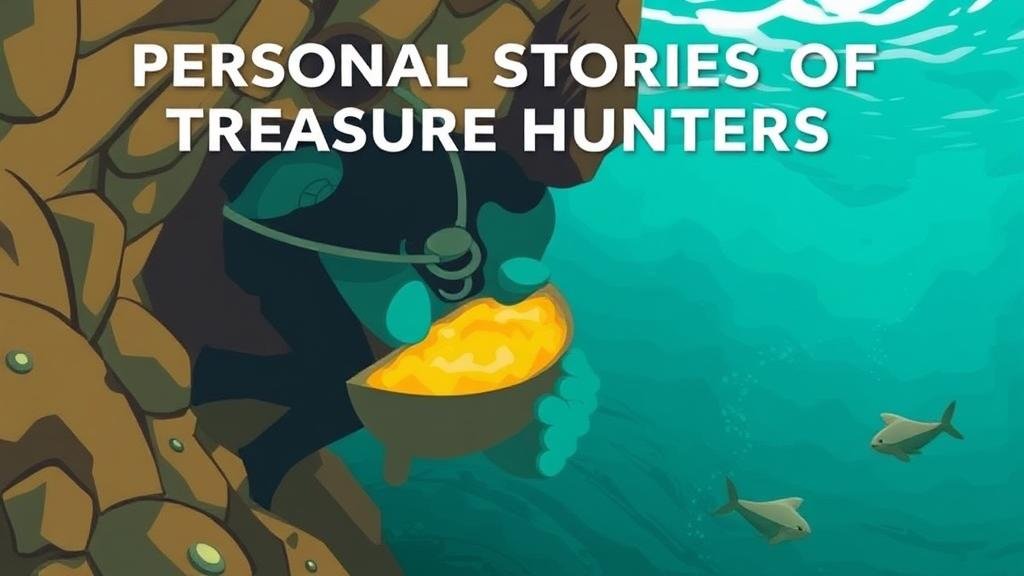Personal Stories of Treasure Hunters: Modern Explorers Share Their Secrets
Introduction
The allure of elusive treasures has captivated human imagination for centuries. From sunken ships to lost cities, the world is replete with tales of fortune waiting to be discovered. This article explores the fascinating personal narratives of modern treasure hunters, delving into their motivations, methodologies, and secrets gleaned from years of exploration. By analyzing their experiences, we can gain valuable insights into the contemporary treasure hunting landscape.
The History of Treasure Hunting
Treasure hunting is far from a new phenomenon; its roots can be traced back to ancient civilizations. Historical accounts, such as those of the gold-laden tomb of Tutankhamun discovered by Howard Carter in 1922, underscore humanitys relentless pursuit of wealth hidden beneath the surface.
In the modern era, treasure hunting has evolved into a blend of archaeology, adventure, and technology. The famous Garcia’s treasure, lost in 1715 off the Florida coast, serves as a prime example where innovative methods, such as sonar imaging, have led to successful recoveries.
The Motivation Behind Treasure Hunting
Modern treasure hunters are often driven by a combination of passion, curiosity, and the prospect of financial gain. allure of adventure is a key motivator, as exemplified by treasure diver Jack Irvine, who notes: It is not always about the gold; often, its about the history and the thrill of the search.
- Adventure and Exploration: Many treasure hunters find fulfillment in uncovering stories from the past, viewing each discovery as a piece of history restored.
- Financial Incentives: While some hunters are fueled by the thrill of exploration, others are motivated by the potential financial rewards of significant finds.
Modern Techniques Used in Treasure Hunting
The techniques employed in modern treasure hunting have evolved dramatically, thanks to advances in technology. Here are some of the most significant methods currently in use:
- Metal Detectors: Widely used by amateur and professional treasure hunters, metal detectors have helped locate a plethora of artifacts, from coins to jewelry.
- Sonar Imaging: Used in underwater exploration, sonar imaging allows treasure hunters to map the ocean floor, revealing the locations of potential shipwrecks.
- Geographic Information Systems (GIS): GIS technology helps hunters analyze geographic data to predict where treasures might be located.
For example, in 2020, a team of divers off the coast of Portugal used advanced sonar technology to locate the wreck of a ship sunk in the 17th century, leading to the recovery of gold coins worth millions.
Case Studies of Successful Treasure Hunters
1. Mel Fisher: The Ultimate Treasure Hunter
One of the most renowned treasure hunters, Mel Fisher, is celebrated for the discovery of the Nuestra Señora de Atocha, a Spanish galleon that sank in 1622. After nearly 16 years of searching, Fisher and his team located the wreck in 1985, recovering over $450 million in gold and silver. His persistence and innovative approach, combined with significant investment into technological tools, set a benchmark in the field of treasure hunting.
2. Dr. Robert Ballard: Beyond Pot of Gold
Dr. Robert Ballard, best known for discovering the wreckage of the Titanic in 1985, approaches treasure hunting from a scientific perspective. Ballard emphasizes the importance of preservation and understanding the archaeological significance of underwater finds. His work showcases how modern technology, like deep-sea submersibles and remotely operated vehicles, can uncover treasures while maintaining historical integrity.
Challenges Faced by Treasure Hunters
While treasure hunting can be exhilarating, it also presents numerous challenges:
- Legal Barriers: Many countries have strict laws regulating treasure hunting, which can complicate recovery efforts.
- Environmental Concerns: The impact of treasure hunting on marine ecosystems has raised ethical questions among environmentalists.
- Community Relations: Treasure hunters often face opposition from local communities that may view their efforts as intrusive or detrimental to cultural heritage.
In the Maldives, for example, treasure hunting has led to conflicts with local communities and preservationists concerned with the potential for damage to coral reefs and marine ecosystems.
Conclusion
Modern treasure hunting is a multifaceted endeavor fueled by adventure, technology, and the quest for both fortune and historical knowledge. As demonstrated by the stories of treasure hunters like Mel Fisher and Dr. Robert Ballard, the integration of advanced technology with a respect for archaeological integrity is vital for successful recoveries. Understanding the diverse motivations and methodologies underlying treasure hunting enriches our appreciation of this timeless pursuit.
Actionable Takeaways
- For aspiring treasure hunters, invest in quality equipment such as metal detectors and familiarize yourself with local laws regarding treasure hunting.
- Consider educational opportunities in archaeology and marine sciences to enhance your understanding of the historical and ecological context of your work.
- Engage with local communities and advocacy groups to build positive relationships and ensure responsible recovery practices.



